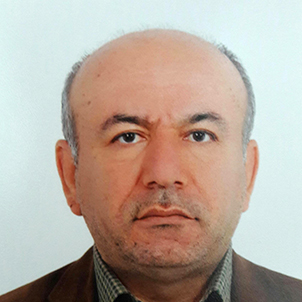War Tourism: A Qualitative Analysis of Rahiyan Noor Trips to War Areas
Author(s):
Abstract:
War is one of the most important events in the history of every society that might have negative or positive consequences. Although at first glance, the costs of war may be irreparable, after the war, a positive analysis of the consequences of war can be presented. Especially when war is defensive, it would produce or reproduce positive values which remain in collective memory and are transferred to the next generation in many ways. In recent years, in our country, Rahiyan Noor trips have been organized for visits to war areas attracting many people, especially young ones. At this point, some questions are raised: "what is the motivation behind these trips?" and "what effects will the experiences of these trips leave on individuals?" This study used qualitative research methods and the strategy of Grounded Theory, a general research method used to generate theories. The research data were collected through open, in-depth interviews. The population of the study consisted of 18 students from Payame Noor University of Piranshahr, who had experience of Rahiyan Noor trips. They were selected through theoretical and purposive sampling methods. The size of the sample was determined when theoretical saturation was reached in the interviews. The results arising from multiple coding led to the formation of a theoretical model with war tourism as the main concept. The results show that the experiences of Rahiyan Noor trips will help form and reproduce positive individual and collective memory of the war through transferring war values to the next generations.
Results and Discussion :The results arising from multiple coding led to the formation of a theoretical model with war and self-development tourism as the main concept. The results show that the experiences of Rahiyan Noor trips will help form and reproduce positive individual and collective memory of the war through transferring war values to the next generations. Therefore, it can be argued that eight years of sacred defense created an atmosphere in which many moral concepts such as sacrifice, martyrdom, believe in God, Freedom, love, unity, courage, and perseverance that can be effective in the infrastructure of the cultural and political system of any country, can be interpreted. Memories of the sacred defense and its spiritual atmosphere have social bases. Rituals, rites, commemoration, and remembrance which provide for remembering war memories are shared with others. War and self-development tourism is not just a normal trip but also one of the most effective methods of transferring the values and experiences of the last generation to the next generation and a means of promoting the culture of martyrdom among young people and future generations. In fact, the experience of Rahyian Noor Tip helps enhance the collective memory of the war for the present generation. Thus, a sense of interaction is formed where the last generations experiences are transferred to the next generation which would eventually lead to the formation of a common collective memory of the war based on the supreme values of the war period.
Introduction
War is one of the most important events in the history of every society that might have negative or positive consequences. Although at first glance, the costs of war may be irreparable, after the war, a positive analysis of the consequences of war can be presented. Especially when war is defensive, it would produce or reproduce positive values which remain in collective memory and are transferred to the next generation in many ways. One of the specific types of tourism, which in recent decades has been of interest to tourists and planners, is war tourism. This type of tourism was attracted to, for the first time, by Western countries years ago and was manifested in the forms of visiting the monuments and vestiges left after the First and the Second World War. The main axes of this type of tourism are the preservation of the effects of war and transfer of the concepts and values of the society in time of war to future generations. Eight years of sacred defense, as an honorable, glorious, and epic event, has been recorded in the collective memory. Sacred Defense has had a significant role in the construction of social realities of today's society whether in terms of formal or informal rules and norms or in terms of the representations of collective behavior such as values, ideals, and myths. Thus, in the years after the imposed war, various programs have been implemented by different institutions to promote and preserve the values and ideals of the war. One of these programs is Rahiyan e Noor Trips (light-bound trips) to visit the war zones. At this point, some questions are raised: "what is the motivation behind these trips?" and "what effects will the experiences of these trips leave on individuals?"Methods
This study used qualitative research methods and the strategy of Grounded Theory, a general research method used to generate theories. The research data were collected through open, in-depth interviews. The population of the study consisted of 18 students from Payame Noor University of Piranshahr, who had experience of Rahiyan Noor trips. They were selected through theoretical and purposive sampling methods. The size of the sample was determined when theoretical saturation was reached in the interviews. The research data were analyzed using coding at the three levels of open coding, axial coding, and selective coding.Results and Discussion :The results arising from multiple coding led to the formation of a theoretical model with war and self-development tourism as the main concept. The results show that the experiences of Rahiyan Noor trips will help form and reproduce positive individual and collective memory of the war through transferring war values to the next generations. Therefore, it can be argued that eight years of sacred defense created an atmosphere in which many moral concepts such as sacrifice, martyrdom, believe in God, Freedom, love, unity, courage, and perseverance that can be effective in the infrastructure of the cultural and political system of any country, can be interpreted. Memories of the sacred defense and its spiritual atmosphere have social bases. Rituals, rites, commemoration, and remembrance which provide for remembering war memories are shared with others. War and self-development tourism is not just a normal trip but also one of the most effective methods of transferring the values and experiences of the last generation to the next generation and a means of promoting the culture of martyrdom among young people and future generations. In fact, the experience of Rahyian Noor Tip helps enhance the collective memory of the war for the present generation. Thus, a sense of interaction is formed where the last generations experiences are transferred to the next generation which would eventually lead to the formation of a common collective memory of the war based on the supreme values of the war period.
Keywords:
Language:
Persian
Published:
Journal of Tourism Planning and Development, Volume:5 Issue: 17, 2016
Pages:
97 to 114
magiran.com/p1577969
دانلود و مطالعه متن این مقاله با یکی از روشهای زیر امکان پذیر است:
اشتراک شخصی
با عضویت و پرداخت آنلاین حق اشتراک یکساله به مبلغ 1,390,000ريال میتوانید 70 عنوان مطلب دانلود کنید!
اشتراک سازمانی
به کتابخانه دانشگاه یا محل کار خود پیشنهاد کنید تا اشتراک سازمانی این پایگاه را برای دسترسی نامحدود همه کاربران به متن مطالب تهیه نمایند!
توجه!
- حق عضویت دریافتی صرف حمایت از نشریات عضو و نگهداری، تکمیل و توسعه مگیران میشود.
- پرداخت حق اشتراک و دانلود مقالات اجازه بازنشر آن در سایر رسانههای چاپی و دیجیتال را به کاربر نمیدهد.
In order to view content subscription is required
Personal subscription
Subscribe magiran.com for 70 € euros via PayPal and download 70 articles during a year.
Organization subscription
Please contact us to subscribe your university or library for unlimited access!





